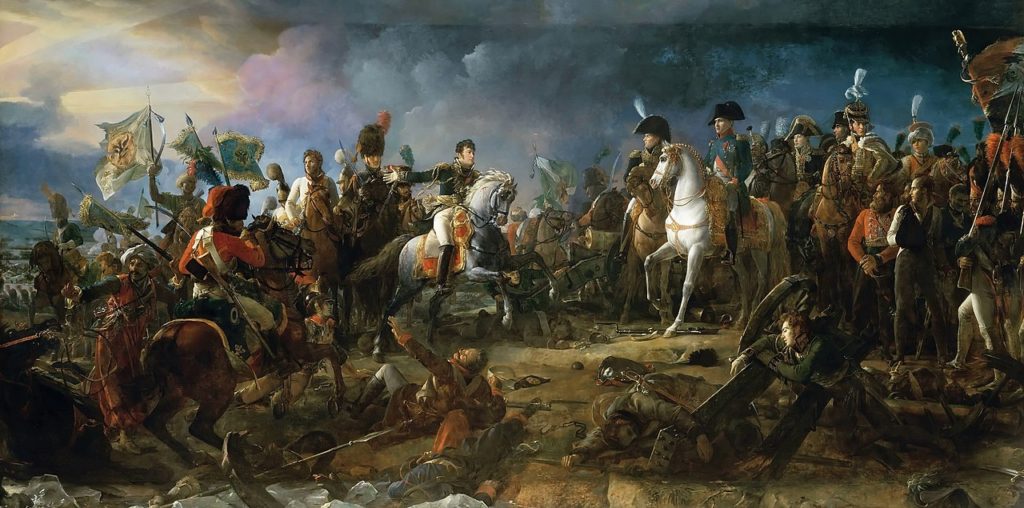
Hail to the King
Le jeu ç’est moi! Undoubtedly, the Sun King would have amended his declaration had he ever gotten to enjoy a game of Diplomacy.[1]Though he might not be so pleased to see a united Germany or Italy. France is the undisputed king of Diplomacy. As defensible as Italy and Turkey; offensive potential rivaled only by Russia; superiority in a one-on-one contest with any neighbor; a clear path to conquer one half of the stalemate line; easy access to a fortuitous eighteenth center just beyond…France has everything an aspiring diplomat could ask for. Your very own Bored Brother regards France so highly that even in the most hostile anti-French environment, he would happily choose to play France if allowed the option:
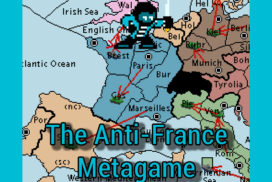
I’m maybe not quite so bullish on France, but I simply must concede to reality: France is the best country in the Classic version of the game, no matter the press rules.
If We Fight Fair, I Win
In many matches, all that France needs to secure a place in a draw—or perhaps even a solo win—is the mere refusal of France’s neighbors to commit immediately to France’s total destruction. Left to its devices, France has a very clean path to victory in which it secures its Iberian neutrals[2]Yes, multiple neutral centers to which it has exclusive right, a trait matched only by Germany, attacks England with its fleets, and builds a critical mass of fleets and armies to muscle though North Sea and Norwegian Sea, then invade Germany or Scandinavia. From there, it can finish off Germany or roll up the rest of the Scandinavian centers. And at some point along the way, France need only build two fleets to take Tunisia for a win.
That sounds like a lot. Any solo takes a lot. But everything flows so naturally that you’d be forgiven for thinking Calhamer a Francophile. No other power has such a clean and naturally flowing sequence of conquests to get to eighteen centers.[3]When writing about attaining a Russian solo win, BrotherBored illustrated Russia’s tactical difficulties by contrasting Russia with France. And if the diplomatic situation doesn’t lend itself to following that route, France is hardly set back; in an alliance with England, France can still fight Germany and Italy on two fronts with reasonable success. In short, France can’t pick wrong when it comes to successful routes to victory.
The challenge is getting to pick at all. Savvy players know they’re dealing with the king, so they know not to concede an inch without good reason.
A Deal With The Devil
Alliance with France is a sort of Faustian bargain for other powers. Eliminating France is slow and difficult because France is so defensible; supply center gains won’t come quickly. Each of France’s neighbors has a quicker and more explosive expansion path that involves alliance or at least benevolent neutrality with France. England and Germany have Scandinavia and each other, and Italy has Austria.[4]Italy also has Turkey, which is about as fast a conquest, and more defensible. But any ostensibly easier route comes at a price. France, already difficult to eliminate, becomes even harder to turn back with each passing year. Simply by annexing its natural neutrals and England, France can become a near-inevitable solo threat with as few as eight centers. No other power reaches that near-inevitability even remotely as quickly.
These facts are France’s edge in negotiations with its neighbors. France doesn’t need to posture aggressively for Belgium or for a greater share of spoils from early conquests of other neighbors. France can deal generously with its neighbors because France needs only security and stable expansion; the sheer overwhelming power of France’s superior tactical position will handle the rest.
Airstrip One: Conquer England, Rule the Game
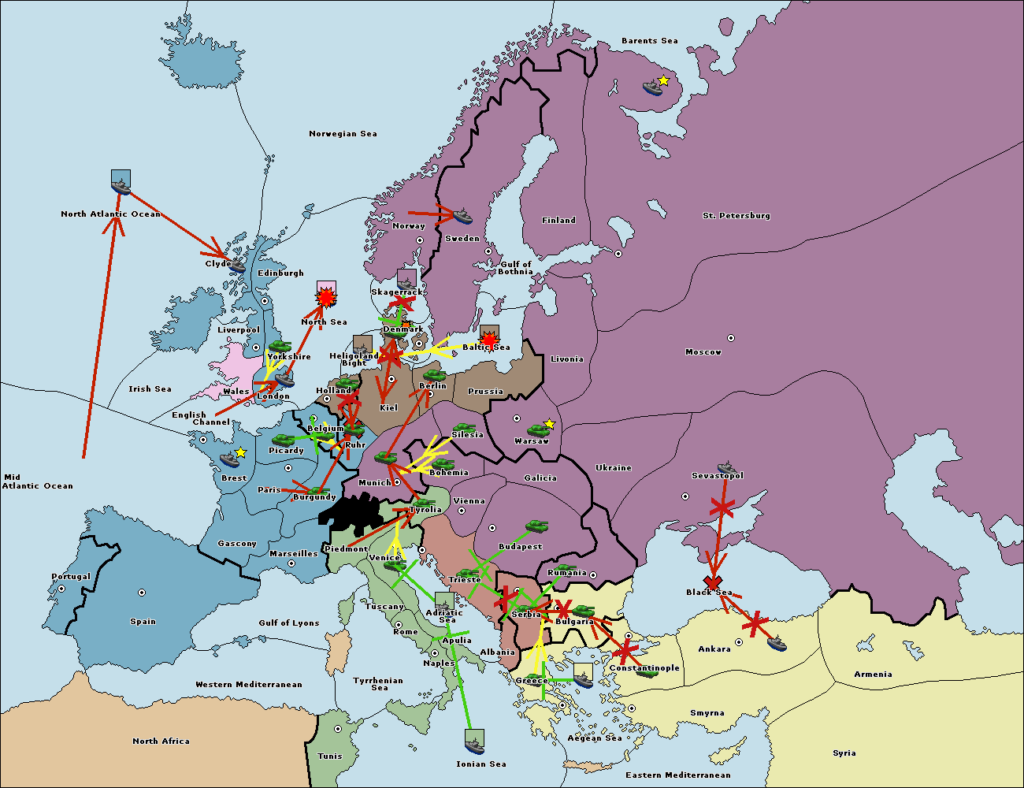
England is a viable ally, but France usually chooses to annex England first while England is vulnerable early. Giving England too much time reduces the chances of a French solo because England can build up an impenetrable wall of fleets. Because Scandinavia is easily defended by sea, giving England time can cost France up to seven supply centers. That can be very difficult to make up elsewhere, even in a game that’s going well. France, Germany, Italy, Iberia, Tunisia, Belgium, Holland, Moscow, and Warsaw only add up to sixteen centers; the final centers will have to come from deep in southern Europe. And all the while, France must defend a long border from English incursion.
By contrast, France can easily capture England’s home centers if France convoys an army onto Great Britain. Once in control of Great Britain, France is the favorite to solo. France now has the combined tactical might of both France and England.
With just three armies, France can build a wall on its land border that Germany alone cannot break through. If France is not under attack from the south, that leaves France four fleets to fight over North Sea. Four fleets can be a decisive numerical advantage for France. Germany’s borders with Austria and Russia demand army garrisons to defend, which means Germany typically opts out of amassing fleets. Once North Sea and Norwegian Sea are secure, France has a plethora of options available for further expansion. Even with a dedicated alliance, Germany and Russia will find it difficult to prevent France from overrunning both players. Most French wins come from annexation of England and subsequent domination of the northern seas.
England can force the Channel, but not much more
On defense, France can struggle to keep England from breaching the English Channel in Spring ’01 and Spring ’02. In Spring ’01, the better move for France is usually to pick up Portugal by opening to Mid-Atlantic Ocean. In Spring ’02, France usually only has one fleet adjacent to English Channel, compared to England’s two. However, without pressure from somewhere else, a breach of the Channel is more annoying than threatening to France. Furthermore, France can parry this move effectively by moving from Mid-Atlantic Ocean to North Atlantic Ocean or Irish Sea. The real threat comes from combined pressure from other neighbors rather than from England alone.
Maginot: Germany Comes Later
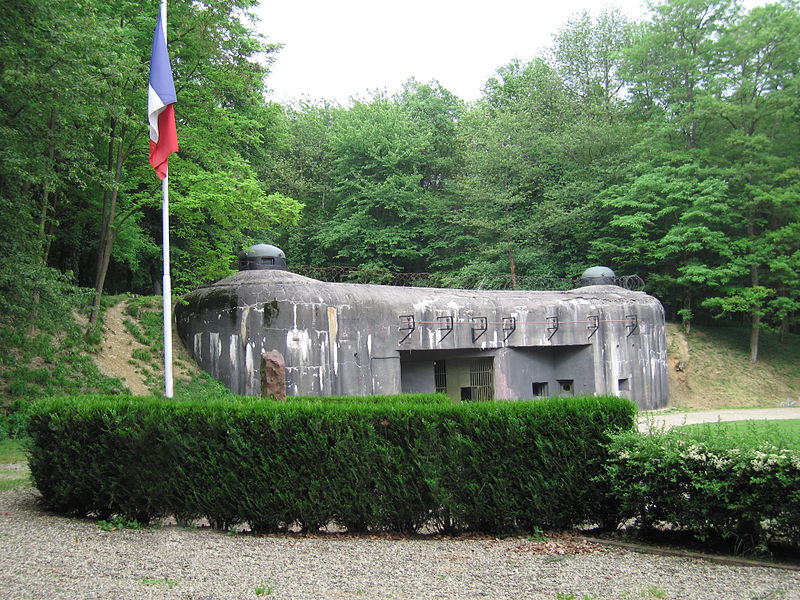
Germany is a more natural ally for France. This is not because Germany has anything specific to offer France vis-à-vis England or the other powers, but rather because the design of the French-German border strongly discourages direct conflict between the two powers. Frontal assaults are prohibitively difficult because each country only needs three armies to defend the border. Both countries usually have three armies to defend the border after 1901. Without help from a third party, both countries must be content to guard the border and seek expansion elsewhere. That “expansion elsewhere” is a significant factor for Germany in working out its alliances, too. The prize of total dominion over Scandinavia is very tempting, and it brings Germany into direct conflict with England. That further incentivizes French-German cooperation rather than conflict.
It’s really hard for either country to defeat the other one without help
From France’s perspective, Germany is difficult to crack without either annexing or allying with England. Germany can only be beaten from the west via naval superiority. Relying on beating Germany with help from the east is risky, because that help will claim Berlin and Munich (making a win more difficult later in the game). Annexing England advances the goal of winning the game; allying with England permits England to grow to a point where France can no longer conquer England. Furthermore, Germany’s unique position directly on the major stalemate line leaves it constantly vulnerable to attacks from the east. These attacks become more likely as the game progresses. As noted, France doesn’t really want to see an all-out attack on Germany from a powerful Austria or Russia. But if those powers draw Germany’s attention east, that gives France the decisive window to strike and win.
As a threat, Germany usually can’t overpower France through a frontal assault…but a crafty Germany can sneak into Burgundy if France isn’t diligent. Germany’s ability to threaten France increases sharply if Burgundy is breached. That said, it can still take time and good guesswork to convert such a breach into a permanent gain. The slight tactical advantage of being in Burgundy is almost never good enough for Germany to try to “go it alone” against France. Even if Germany can seize a positional advantage in Burgundy through diplomatic outmaneuvering, Germany needs help from another power to prevent France from recovering and repelling an incursion into Burgundy.
Rome and Gaul: Italy Is The Biggest Danger
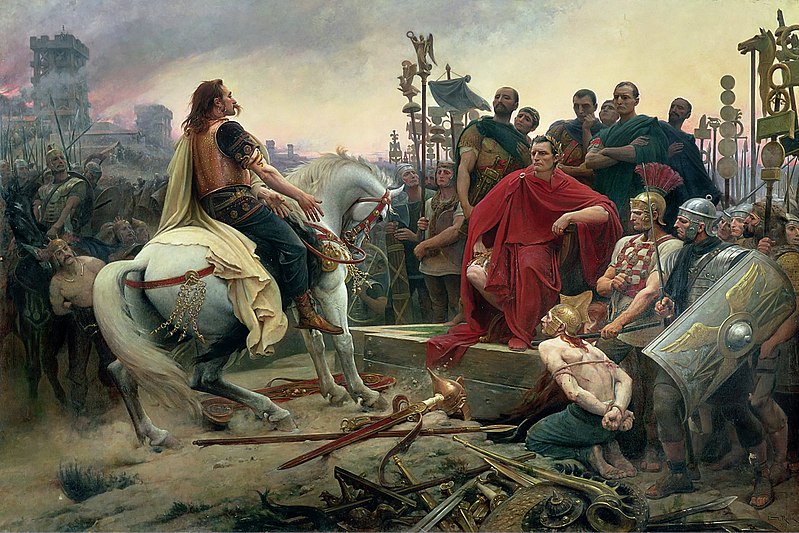
It might come as a surprise, after all this text about the importance of England and Germany, to read that Italy is the most threatening power to France early in the game. Again, as with England and Germany, it isn’t due to an ability to overpower France one-on-one; France can repel an Italian attack if France is not under duress from England or Germany. The chief issue is that France is almost always under duress from England or Germany. The Italian attack is comparatively rare in the early game, and almost always requires English or German encouragement.
But it is a uniquely devastating attack because France is more vulnerable to southern attack than northern. Gulf of Lyons and Western Mediterranean are more threatening provinces to occupy than English Channel; and unlike with England and Germany, the units needed to defend against Italy and against any other neighbor overlap. Against England and Germany, France has a perfect division of labor: armies repel Germany, fleets repel England. France has the right mix of both types of units to get the job done. But Italy demands fleets and armies; Italy demands enough of them that France can’t hold off either of its other neighbors if they also attack.
On the bright side, this won’t happen too often
The good news for France is that this Italian invasion is rare because, strategically speaking, France is Italy’s worst early target. England and Germany both want France’s centers as part of their solo win. Italy almost always comes into conflict with one or both powers shortly after conquering the southern French centers. Defending those gains can quickly become a quagmire where Italy totally stalls out to protect what it has, and can’t leverage its initial gains to create more gains, as it normally does when attacking Austria or Turkey. Attacking Austria poses a similar risk as attacking France, but the reward is much higher; attacking Turkey provides similar gains to attacking France, but with much lower risk of middle game predation. So usually, it’s enough for France to negotiate mutual nonaggression with Italy. But it’s still important to foster that relationship to avoid an embarrassing quick exit for the king.
If we’re not fighting, let’s just leave each other alone
Unlike England and Germany, Italy isn’t a particularly useful ally for France. Italy can’t attack England. And an Italian-French alliance against Germany is usually counterproductive for Italy; Italy can’t maintain any gains it makes in Germany, and any gains France makes in Germany will just make France more capable of attacking Italy in the middle game. Italy and France mutually understand that they may fight at some point (perhaps during the endgame solo run), but fighting early is usually mutually counterproductive. You’ll often see cordial nonaggression in public and to each other, mixed with behind-the-scenes scheming to slow the other down.
Russia, the Deceptive Friend
Players often perceive Russia as a great ally for France. To be clear, Russia’s and France’s fates are somewhat tied together. It’s rare to see Russia do well when France struggles; when France does well, Russia usually has a window to capitalize on England’s and Germany’s comparative weaknesses. These trends result from mutual antagonism against England. Russia and England very commonly start fighting over Norway whenever Russia is permitted to take Sweden. This conflict draws English units east, leaving England wide open to attack from France. When Russia and England aren’t fighting over Norway, it’s usually because Germany denied Russia Sweden; this usually comes as a result of an Anglo-German alliance, which has France as its natural first target.[5]To learn more about this dynamic, read BrotherBored’s article on when Germany should permit Russia to take Sweden in 1901.
Having mutual enemies doesn’t necessarily makes you friends, though
However, France is usually indifferent or even slightly hostile to Russia’s actual success in the game. The threat Russia can pose to France’s immediate targets is all France really cares to foster. Russian players that manage to dominate Scandinavia and build multiple northern fleets are nuisances more than potential allies. And even if France desired that Russia do well, opportunities for direct cooperation are more limited than they appear. Germany is the only meaningful mutual target that France could tolerate. Moreover, because Russia, uniquely among the “southern” contenders, can build north of the stalemate line—and build fleets, no less—Russia is one of the worst countries for France to see dominating the south; profits in the south can be used to run deficits in the north, clogging up Scandinavia with more units than it could sustain on its own, making French victory all the harder.
Austria & Turkey Are France’s Best Friends Long-Term
Finally, Austria and Turkey play similar roles for France as they do for England. Austria and Turkey are both too distant for direct cooperation in most cases, and they can be a liability in that they tend to compete for stalemate line centers around the same time France does. The major difference is that France is equidistant to Austria from Berlin and Munich, and to Tunisia from Turkey, so France has less to fear from them growing powerful than England does.
On balance, as with England, France prefers Turkey the most of the southern powers to be the dominant force in the region, because France has a significant advantage in fighting over Munich and Berlin, and France has a slight edge in fighting over Tunisia[6]Despite the two countries being equidistant from Tunisia, France has the inside lane in reaching Tyrrhenian Sea, which gives France better leverage to fight over Tunisia.. Austria isn’t a bad ally either. Fighting over Munich and Berlin will become tougher, but France easily acquires Tunisia, and Austria’s poor fleet presence creates Mediterranean opportunities for France. Either power is a great complement to France, because they both weaken Italy and hinder Russia when they do well.
French Opening Strategy
France has several options for opening strategy, and few non-negotiable objectives to work around. France wants to keep foreign powers out of English Channel, Burgundy, and Piedmont. Other than that, France has many optional goals in 1901. For example, France may want to get Portugal, Spain, and/or Belgium. France could set up attacks on a neighbor, or decline to menace any of them. Different openings work toward those goals in different ways, but ultimately, France is flexible. You don’t have to pick up both Iberian centers in 1901 if the situation calls for an English Channel and Burgundy defense. You don’t have to put a unit on Belgium if your diplomacy allows you to ignore it.
But because the main strength of France diplomatically is the Faustian bargain, it’s critical that France protect key spaces from early incursions. If France makes its defeat too easy, England and Germany and Italy will be happy to oblige. A non-exhaustive list of some of France’s best openings follow. Note that not all openings list moves for all three units; that’s because the third unit typically has several options. (I didn’t want to crowd up the list with openings that are almost the same.)
France’s Best Openings
- The Burgundian Offensive: F Bre – MAO, A Mar S A Par – Bur
- The Burgundian Defense: F Bre – MAO, Mar – Bur
- The Norman Assault: F Bre – ENG, A Par – Pic
- The French Hedgehog: F Bre – ENG, A Mar S A Par – Bur
Burgundian Offensive: Best Foot Forward
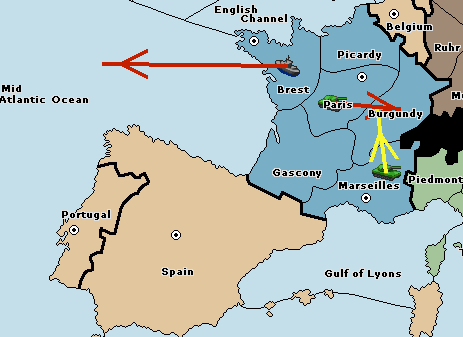
The Burgundian Offensive is probably France’s most “standard” opening. If you’re confident English Channel will be clear, this opening is France’s strongest neutral opening. Burgundy is a powerful position on offense and defense; you project force on Belgium and Munich, but can also defend Marseilles and Burgundy from Italy and Germany. The army in Marseilles and the fleet can easily pick up the Iberian centers. The opening covers all bases except for the English Channel as efficiently as possible. The major weakness of this opening, of course, is that weak spot in the Channel. France can’t cover Brest without forgoing a build, and a wrong guess sets France back significantly. In the worst case, Burgundy can move to Picardy to block a convoy there, and to recapture Brest in 1902. But the smart play if you suspect a Channel opening by England is to find another opening.
Burgundian Defense: A Less Offensive Alternative
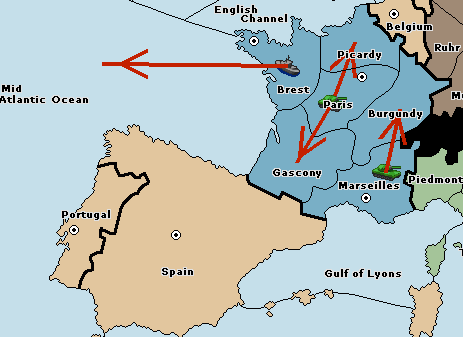
The Burgundian Defense is a less-aggressive variant of the Burgundian Offensive that merits separate discussion; it has some options for the third unit, and requires distinct negotiation to deploy it optimally. The Burgundian Offensive is more powerful in abstract. However, we need to consider the situations where you would voluntarily sacrifice that power for another gain. The major advantage to the Burgundian Defense is that France can bounce in Burgundy and still move next to Belgium. Germany can only match this advantage by giving up influence on Sweden. That dynamic usually results in Germany ceding any Belgian interest in 1901, which sets Germany’s growth back. It also makes France’s earlier capture of Belgium in an alliance with either neighbor that much easier. The bounce can be sold as benefiting mutual security; and it is a concession to Germany, given that France could just force Burgundy to get a similar result.
Have Marseilles, not Paris, commit to the bounce
It’s key that Marseilles, not Paris, be the army to bounce in Burgundy. The army in Marseilles still borders Spain for a fall capture; the army in Paris will be unable to influence a neutral supply center. Furthermore, the army in Marseilles lacks for decent options when Paris is bouncing rather than forcing Burgundy. The one case where a Paris bounce is superior is when Marseilles is unavailable. Typically, this is because Italy is moving to Piedmont. Otherwise, the Marseilles army should bounce Germany in Burgundy. The Parisian army has two main options—move to Picardy or move to Gascony. The move to Picardy influences Belgium and keeps a garrison on the English front, both strong considerations. The move to Gascony still offers cover to Brest while also allowing a Spanish capture while protecting Piedmont.
William the Conqueror: The Norman Assault
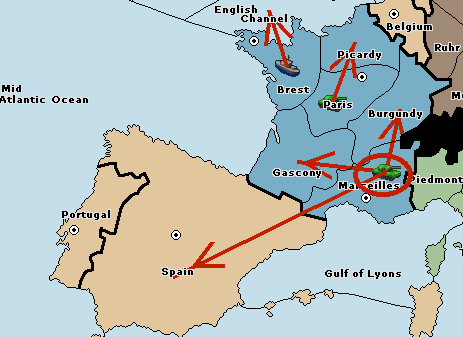
The Norman Assault is a more aggressive opening. By moving to the English Channel and Picardy, France forgoes one Iberian build until 1902. In exchange, France seizes a significant tempo advantage against England from the very beginning of the game. Unlike England’s equivalent opening, the army in Picardy remains relevant by influencing Belgium even if England bounces Channel. If the move to English Channel succeeds, France has four great options:
(1) convoy to London,
(2) convoy to Wales,
(3) support Picardy into Belgium, or
(4) support Germany to North Sea.
The major weakness of this opening is that it doesn’t cover against Italy much at all. Usually only one army is left to cover Marseilles and pick up an Iberian neutral. Germany can also sneak into Burgundy if you’re not careful, although you shouldn’t be pursuing this opening without a strong understanding with Germany. If you’re unsure about Germany, then arranging a bounce in Burgundy with the army in Marseilles is reasonable.
Maginot By Land And Sea: The French Hedgehog
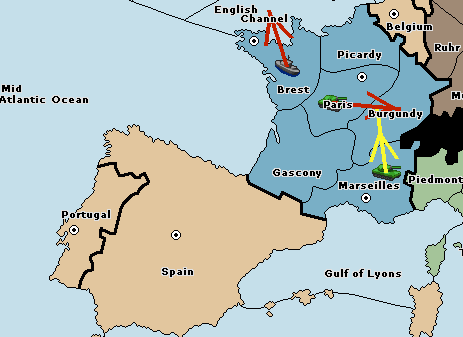
The French Hedgehog is the most aggressive defensive opening for France. The French Hedgehog is a logical outgrowth of the recognition that England and Germany are the biggest threats to France, and seeks to resolve that problem by projecting force right into their main vectors of attack. This opening guarantees that all home centers are secure, and guarantees one build.
There is such a thing as “too much defense”!
However, despite projecting force into key spaces, the opening struggles a bit to be proactively powerful.
This is because your units can only coordinate against Belgium. A typical end-of-1901 state will place one of your armies in Spain and the other in Burgundy. That leaves the armies spread out and unable to coordinate against Germany. If you’re in the Channel, you can take potshots at England; but without a second fleet, don’t expect those potshots to go far. You thus need more fleets and armies to be effective – and you only have one build. I therefore advise against this opening unless you are fairly confident you’re getting attacked in Spring 01.
Of note, this opening is becoming much more popular in upper-level gunboat games on webDiplomacy. That metagame strongly favors English openings to the English Channel. In those cases, France isn’t trying to take the Channel; instead, France is sacrificing a 1901 build to derail England’s start and incentivize Germany not to join England’s attack.
Flash Points
Key spaces for France’s negotiations with its neighbors in 1901 include English Channel, Belgium, Burgundy, Piedmont, and Sweden.
Let’s be upfront about the English Channel
France probably wants more openness regarding intentions on the English Channel than England does. France generally prefers to move the fleet at Brest out to capture Portugal in 1901. Collecting the Iberian centers requires moving pieces away from the major fronts against England and France; it’s in France’s interests to get that done ASAP so France can commit to an attack in 1902-03. Thus, a failed Channel opening is costly to France in a way that it isn’t to England. France passes a guaranteed build in Iberia to bounce in the Channel; England is deprived only of an already-low chance to get a build.
Because the decision is weightier to France, France prefers more information about the Channel. Ideally, France will secure an agreement to demilitarize the English Channel. Perhaps this is done in exchange for concessions elsewhere, like support to Belgium. From that position, France retains the option to breach the agreement and seize the Channel, providing a strong positioning advantage and bargaining position with Germany; or to abide by the agreement and sail to Iberia. If France is uncertain what to expect of England in the Channel, France should probably not move to the Channel. Instead, France should arrange to protect Burgundy and place an army in Picardy after the spring turn. This preserves influence on Belgium, defense against English attack, and the possibility of picking up all of Iberia.
Ask about Piedmont to get more information
Burgundy and Piedmont are more straightforward. France rarely has an interest in anything other than demilitarization of Piedmont. That said, you can get useful information by asking Italy for a bounce in Piedmont (if you can follow through). The Italian player must tip their hand in reply: if Venice is moving, Italy must decline; if Venice is not moving, Italy may accept. That knowledge is helpful even if you don’t know where it’s going. The fact that it’s moving suggests Austria or you are the first target.
Generally, be honest about Burgundy
On the other hand, France usually wants to occupy Burgundy unless diplomatic circumstances strongly cut against it. Burgundy influences Belgium—a valuable objective of a good French opening, though not mandatory—and protects from German incursion. Although the French-German border is usually easy to defend, a German incursion in 1901 throws that assumption off. Because you can force your way into Burgundy, as France you don’t need to play coy with Germany. In fact, regardless of your intentions toward Germany, it’s wise to declare your explicit intent to take Burgundy.
…but not always
As with the English Channel, play your cards closer to the vest if you’re not going there. Germany will very rarely try to move to Burgundy if the German player believes you will as well; but Germany is much more likely to go for Burgundy if you inform the German that Burgundy will be demilitarized. That’s right: you will ironically increase the odds of Germany moving to Burgundy by seeking a DMZ! The benefit to Germany of successfully taking Burgundy is very high. If you want to demilitarize the province, tell Germany you’re supporting yourself to Burgundy. Germany won’t bother going to Burgundy. Then move somewhere else, and voilà, a demilitarized Burgundy. As I said earlier: people lie, pieces don’t. Germany will be happy to discover you were bluffing.
Now for… Sweden???
Now for the two supply centers I listed, Belgium and Sweden. Belgium’s presence on this list is self-explanatory, and I’ll go into detail on that province later. Sweden might be a head-scratcher, considering France has no path to acquiring Sweden for several years. Why would France care so much about such a far-flung center?
We care about Sweden because we want a fight over Norway
Recall our earlier discussion of England:

I mentioned that English-Russian relations are inherently tense, because once Russia captures Sweden, Russia usually wants to build in St. Petersburg. This strongly incentivizes Russia to attack Norway and start a fight with England. Likewise, if Russia is shut out of Sweden, Russia cannot realistically threaten England, in Norway or otherwise. France’s wins often start with a Russian-English fight over Norway, fueled by Russia’s acquisition of Sweden.
France should therefore be lobbying Germany to permit Russia to have Sweden. It’s an uncommon gesture, but it serves France’s aims very well.
It’s In Your Interests…
First, France can plausibly present this move as being in Germany’s interests per se. Obviously, Germany would want to let Russia have Sweden as part of an anti-English alliance; France lobbying for Russia to have Sweden isn’t particularly strange. But the move is also in Germany’s interests if Germany fears an Anglo-French alliance. Germany will need a counterweight to England in Scandinavia. Presenting this information forthrightly to Germany will paint you in a positive light. It shows that you’re providing Germany advice that’s in its best interest even if you two should become enemies! How much goodwill this buys you depends on the player; some players will be very impressed by an objective and honest assessment like that. Almost none will be upset with you, though!
…And Mine Too!
The second reason is more self-interested. If you take a pro-Russian stance on Sweden, then Germany will be thinking about you when deciding. “Is France going to be mad if I bounce Sweden? Is it worth the possibility of seizing Sweden for myself in 1902, if I lose two potential allies?” Generally, Germany only wants to bounce Sweden as part of an alliance with England; this “generally” becomes a near-certainty if you, as France, make an issue of Sweden.
…But It’s Your Call
Just be careful in making an issue out of Sweden—you don’t want to come off as demanding or controlling. Frame it as a pro-German move; be forthright about the fact that it benefits your fight against England as your primary motive; (truthfully) discount the possibility that you and Russia are working closely together; and don’t be too proud to apologize if Germany becomes indignant and tells you to stay in your lane.
Pro tip: Talk about it early, before you could talk to Russia
I specifically like to talk about Sweden in my very first message to Germany. This is specifically to get out in front of the idea that I am motivated by an alliance with Russia; the timing of the discussion matters. If the discussion happens near end of round, Germany might think you and Russia have a deal. Germany might even be right, even if you’d have asked about Sweden regardless! But if you ask right away, before you have time to negotiate with Russia, your interest looks more independent.
Be Patient With Your Belgian Waffle
Last but certainly not least—Belgium! This province dominates discussion of many opening strategy articles for France, but I believe it does so in error. The truth is that Belgium is not all that important a province for France to occupy. Defensively, it “replaces itself.”[7]You need an additional army to guard the border with Germany if you annex Belgium, but Belgium provides extra supply to fund that army, so you’re neither better nor worse off on defense. On offense, Belgium gives valuable leverage over Ruhr, which is essential to France’s efforts to conquer Germany; it’s not an essential province for an attack on England. Overall, Belgium is a nice plus, but securing an alliance is more important.
And boy, is Belgium good for securing an alliance. Even though it’s not critical to any of the other two western powers, they love to acquire it in 1901. Giving Belgium to them supports the theme that alliance with France translates to fast gains. England is thrilled to put an army on the continent; Germany can make real use of an extra unit, whether fleet or army.
Abundance Mentality
Belgium goes to France in an Anglo-French alliance; but it need not do so in 1901. In fact, a three-build France will alarm England even if you’re on good terms. It’s very tempting for France to build a third fleet if it acquires Belgium in 1901. Usually you should help England take Belgium in 1901, and then swap it later. In the case of a German-French alliance, France usually gets Belgium in 1901 if it opens to the Channel. If I’m not opening to the Channel, though, and I’m staying uncommitted I like to let Germany have Belgium.
With France especially, I take an “abundance mentality” approach to the game. I know France is a great country. If I’m simply allowed to play my game, I’ll do well. I don’t need to scrap over petty concessions like getting Belgium in 1901. I’ll get around to taking Belgium when the time is right. But I do need to secure a solid alliance to get out of the early game. Even though I am in a good position to start, I also know I’m at my weakest early; I’ll be nearly unstoppable if I can simply get out of the early game in good shape. So, I tend to be more generous in conceding Belgium as France. One ally is worth far more than one center.
Paths to Victory
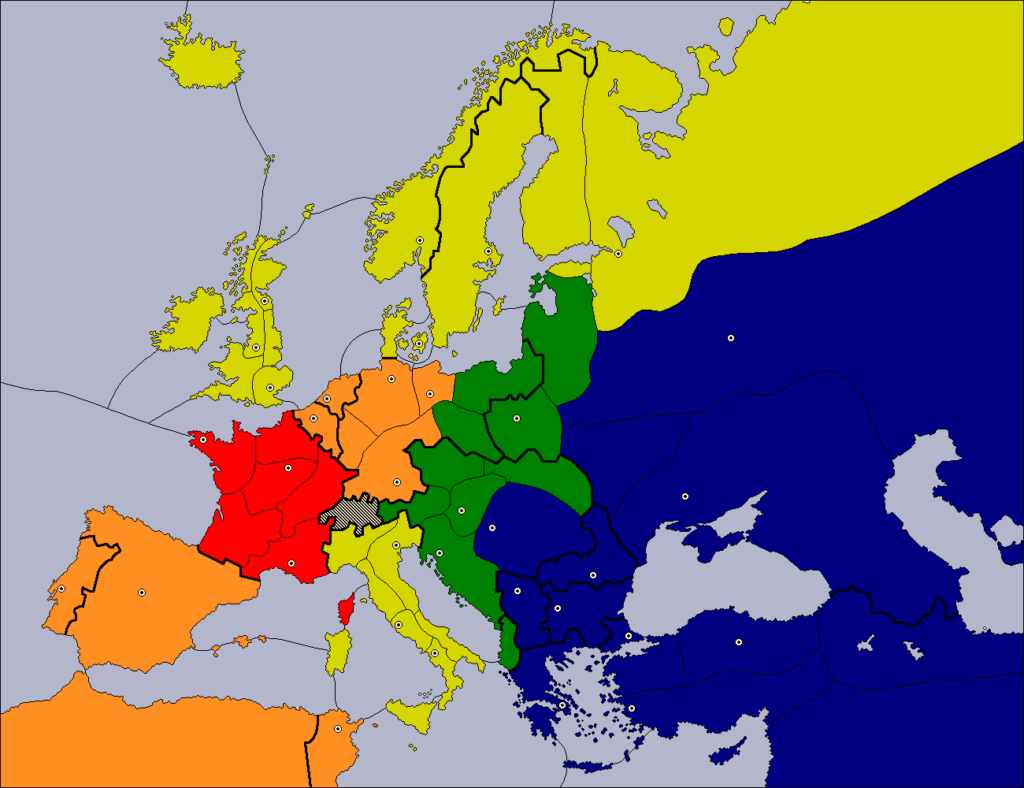
Route 1: Airstrip One
France’s main path to victory is annexing England, then pressing its naval advantage to seize the North Sea and Norwegian Sea, then annexing its choice of Scandinavia or Germany, then annexing the other, and at some point, snapping up Tunisia for the 18th center. The alternative route involves alliance with England to conquer Germany, pressing into the Mediterranean to conquer Italy and Tunisia, and then holding off England by sea while slowly grinding it out of its German centers and expanding into Austria and Russia for the win.
The main path is the main path for a reason: It’s much easier for France and doesn’t demand a lot of serendipity (by solo standards anyway). You simply need to fade an Italian or an Anglo-German attack. You don’t even need Germany as an ally, strictly speaking; it’s often enough to have England, Germany, and Russia in a state of confused scrapping over Scandinavia. You just need Germany not to harass you while you take England out. Once these goals are met, you can just keep rolling north and west. You also don’t need an ally in Italy; you just to avoid an Italian attack.
Idle Italy is the Devil’s workshop
The main priority here is becoming apparent: find something better for Italy to do than attack you. Luckily, that’s usually accomplished for you without much work—Austria is a tempting target and Turkey is a responsible target. You just need to ensure that you win your fights before Italy wins its fights. Alternatively, if Italy simply loses its initial war with Austria or Turkey, that’s fine as well. But the main problem with this situation is that Italy is rarely outright defeated when it loses its initial war. Instead, Italy in these cases often triggers a runaway Juggernaut, and then blitzes you in Iberia and Marseilles. Then Italy prays to make the final draw.[8]At least, this is what a canny Italian player does if that player values making it into a draw. In his article about why he loves to play Italy, BrotherBored described Iberia as an “insurance policy” for Italy. You don’t mind seeing Italy weak, but you do mind a quick resolution in the south. You want to your northern business locked up before the victor in the Mediterranean comes knocking on Iberia and Marseilles.
If you can resolve that southern issue, then the rest tends to come without too much trouble. Lobby hard (but reasonably) for Russia to get Sweden to create the tension that you want between England and Russia. Present a tough-but-fair diplomatic face to reduce temptation from England and Germany. Be aware of the southern developments to find the best window to take Tunisia.
Route 2: The Entente Cordiale
The alternative path of allying with England complicates matters in the south. This alliance usually involves a major attack on Italy early in the game. This attack often empowers Turkey and creates a Juggernaut, but that’s not necessarily a bad thing for you; you have the inside lane to conquering Italy as compared to Turkey. Plus, a strong England and strong Russia just increases the inherent tension between those countries. That might give you a window to betray England that otherwise wouldn’t exist. Part of electing to run this opening is a careful understanding of the southern sphere of the board. You can really mess things up for yourself if you’re haphazard in attacking Italy; you may give Turkey too much time and space to develop its position.
As with England, you do generally want to see Turkey come out ahead. Just be careful about empowering Turkey too fast, because Turkey will have enough fleets to challenge you. In both cases, Austria is a decent complement to France. Austria usually keeps Italy busy, can’t threaten Tunisia effectively, and can distract Germany and Russia in the middle game. You don’t generally want Austria to emerge as the strongest power, because it can contest Munich and Berlin very effectively. But if Austria takes a long time to emerge as that strongest power, you might have time to secure Germany first. At that point, Austria is clearly your best complement due to its poor ability to build fleets.
Wrap-Up: It’s Good To Be The King
France is the best country in Diplomacy. Keep Italy busy with somebody besides you; make England or Germany an offer they shouldn’t refuse, and follow through; get out of the early game alive; and enjoy your win or strong draw finish. France is a great country for every play style and in every format.
More from Eden’s Diplomacy Dossier:
Footnotes
| ↑1 | Though he might not be so pleased to see a united Germany or Italy. |
|---|---|
| ↑2 | Yes, multiple neutral centers to which it has exclusive right, a trait matched only by Germany |
| ↑3 | When writing about attaining a Russian solo win, BrotherBored illustrated Russia’s tactical difficulties by contrasting Russia with France. |
| ↑4 | Italy also has Turkey, which is about as fast a conquest, and more defensible. |
| ↑5 | To learn more about this dynamic, read BrotherBored’s article on when Germany should permit Russia to take Sweden in 1901. |
| ↑6 | Despite the two countries being equidistant from Tunisia, France has the inside lane in reaching Tyrrhenian Sea, which gives France better leverage to fight over Tunisia. |
| ↑7 | You need an additional army to guard the border with Germany if you annex Belgium, but Belgium provides extra supply to fund that army, so you’re neither better nor worse off on defense. |
| ↑8 | At least, this is what a canny Italian player does if that player values making it into a draw. In his article about why he loves to play Italy, BrotherBored described Iberia as an “insurance policy” for Italy. |